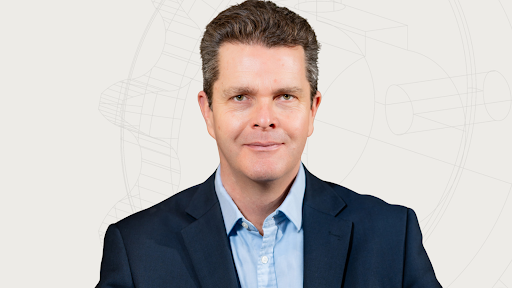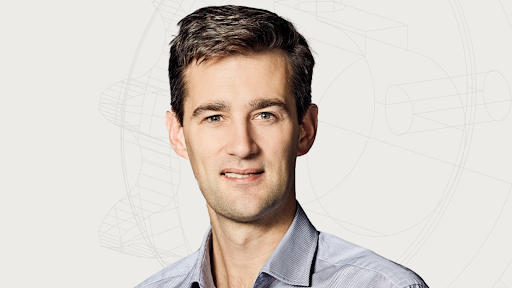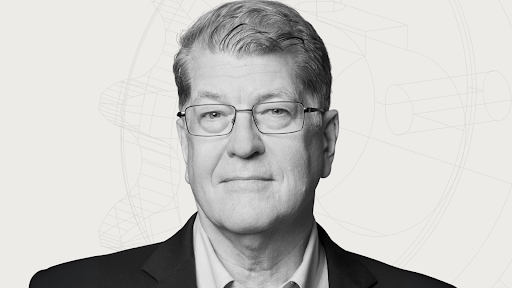.png)
In this Telescope LENS Q&A, we talk with Michelle Giuda, CEO of the Krach Institute for Tech Diplomacy at Purdue University. From her perspective as both a former student athlete and a leader in global technology policy, Michelle shares insights on how the United States and its allies can deliberately shape a future of freedom, prosperity, and security, powered by trusted technology and new models of collaboration.
Tell me a little bit about what your day to day is like and how that interacts with the work that Telescope does.
At the Krach Institute, we work every day to make sure that technology advances freedom. We’re building a two-sided trust network of companies and countries committed to that same mission, working with us to accelerate the adoption of the trusted tech stack, or the U.S. and allied tech stack, as far and wide as possible across the world. When it comes to the Telescope Foundation, we have a lot of alignment and shared interest in this vision and the common perspective that we need to shape the future when it comes to technology.
Is there an idea you’ve come across recently that made you think: this could really change things for the better?
I heard someone say recently that ordinary people don’t just drift into becoming elite athletes. They decide.
That resonated with me because my first career was as a student-athlete. Ordinary people become elite athletes because they choose to create the future version of themselves they want to become. They wake up every day with that commitment, determination, and discipline.
I think the same applies to the United States. We’re not just going to drift from leading in the 20th century to leading in the 21st. We have to decide. We have to wake up every day with the determination, discipline, imagination—and enthusiasm—to deliberately create that future for our country.
How does this perspective on technology and leadership help make the world more secure and prosperous?
Technology’s role in our national security and prosperity requires us to think about leadership differently. For the past 80 years, multiple generations, it has felt like the government’s job to lead on national security. But with technology at the forefront, leadership now requires builders, innovators, creators—the private sector.
Washington, D.C. doesn’t create. Brussels doesn’t create. The UN doesn’t create. If we’re going to create the future this moment demands, that leadership has to come from the private sector—the entrepreneurs, the doers. It’s a big shift in responsibility, but also a tremendous opportunity.
How can we do a better job of finding and lifting up emerging or nontraditional talent?
When it comes to talent, we can draw lessons from elite sports. Technical skills—engineering, science, STEM—are the baseline. But if we’re really going to lead the future, we also need to draw out the intangibles: imagination, creativity, vision.
Elite athletes also succeed because of their enthusiasm. Even though the work is hard, they love it. If we can inspire that same enthusiasm in the United States—to tackle hard problems with energy and optimism—we’ll be unstoppable. Innovation and enterprise are our superpowers. We just need to remember to use them.
When you hear the phrase “a future that works for us,” what does that mean to you?
The ultimate vision of success is maximum freedom, maximum security, and maximum prosperity. That’s what the U.S. has always been about—becoming the safest, freest, and most prosperous country in history.
The goal hasn’t changed, but the environment has. We’re a quarter of the way through a new century. To reach those same end states, we need to reorient, adapt, and find new ways of doing things.
Is there someone whose work has inspired you recently in advancing security and prosperity?
The students at Purdue University. Recently I toured our digital nuclear reactor—the only one in Indiana and the first in the world to be fully digitally operated. Purdue students are the ones designing it, researching it, and solving hard problems with enthusiasm.
They’re 19 and 20 years old, explaining nuclear engineering in ways you can actually understand. That takes real skill. They inspire me because they’re solving some of the world’s hardest problems with optimism and energy. They’re saving America one engineering problem at a time.
As you look ahead, what gives you the most hope?
Talking to tech companies and entrepreneurs who are focused on creating new categories. Washington talks about outpacing China. But the only way we truly outpace China is by creating new categories and leading.
We can’t let adversaries set our strategy. The private sector is exploring what’s next—that’s what gives me hope, and that’s how America will lead.



.png)
In this Telescope LENS Q&A, we talk with David Winickoff, Head of the Responsible Innovation Unit at the Organization for Economic Cooperation and Development (OECD). From his perspective bridging academic expertise with international policy development, David shares insights on how to realize the enormous potential of emerging technologies while managing risks—and why anticipating technological change, rather than reacting to it, is key to building a better future.
.png)
In this Telescope LENS Q&A, we talk with Dr. Rumman Chowdhury, CEO and founder of Humane Intelligence Public Benefit Corporation and co-founder of the nonprofit Humane Intelligence. From her perspective as both a social scientist and AI ethics pioneer, Rumman shares insights on bridging the gap between technology development and what people actually want to see in the world—and how everyday voices can shape the AI systems being built around us.
.png)
In this Telescope LENS Q&A, we talk with Erika Staël von Holstein, Co-Founder and Chief Executive of Re-Imagine Europa. Drawing from her expertise in neuroscience and narrative strategy, Erika shares insights on how our thinking patterns shape reality, why we need to listen to those we disagree with, and how AI can help us build wiser technology by understanding the limits of our own narratives.
.png)
In this Telescope LENS Q&A, we talk with Michelle Giuda, CEO of the Krach Institute for Tech Diplomacy at Purdue University. From her perspective as both a former student athlete and a leader in global technology policy, Michelle shares insights on how the United States and its allies can deliberately shape a future of freedom, prosperity, and security, powered by trusted technology and new models of collaboration.
.png)
In this Telescope LENS Q&A, we talk with Kristen Edgreen Kaufman, Senior Vice President of Global Impact Initiatives at the U.S. Council for International Business (USCIB). With extensive experience bridging global public policy and private sector interests, Kristen shares insights on fostering innovation ecosystems, building coalitions across political divides, and ensuring American competitiveness in emerging technologies.
.png)
In this Telescope LENS Q&A, we talk with Chris Massey, founder and CEO of The Brds Nst. Drawing from his diverse experience across government and private sector, Chris shares insights on demystifying government for entrepreneurs, the transformative potential of AI across healthcare and elder care, and how innovation can serve both security and prosperity when we all "row in the same direction."
.png)
In this Telescope LENS Q&A, we talk with Heather Panton, General Counsel at Labrys Technologies. A former national security lawyer in the UK government who transitioned to the startup space two years ago, Heather shares insights on building compliance into innovation from the ground up, bridging the gap between private sector innovation and government needs, and creating technology that serves the public good.


